
Chora: The Heartbeat of Mykonos
Chora, also known as Mykonos Town, is the vibrant epicenter of Mykonos Island. This charming neighborhood is a maze of narrow, winding streets, where traditional whitewashed houses contrast with vivid blue doors and colorful bougainvillea. As you stroll through the labyrinthine alleys, you'll discover quaint shops, inviting cafes, and lively bars, each exuding a unique charm that is quintessentially Mykonian. Chora is not only a feast for the eyes but also a cultural hub. The iconic 16th-century windmills, standing tall against the azure sky, offer a glimpse into the island's rich history. Little Venice, with its picturesque waterfront houses, provides a romantic backdrop perfect for sunset gazing. The Paraportiani Church, a stunning example of Cycladic architecture, is another must-visit site that showcases the island's religious heritage. Beyond its aesthetic appeal, Chora is a gastronomic paradise. From traditional Greek tavernas to upscale dining establishments, the neighborhood offers a culinary journey that caters to all tastes. Nightlife in Chora is legendary, with an array of bars and clubs where you can dance the night away. Whether you're a history buff, a foodie, or a party-goer, Chora promises an unforgettable experience.
Local tips in Chora
- Visit early in the morning or late in the evening to avoid crowds.
- Wear comfortable shoes for walking the cobblestone streets.
- Try local delicacies like kopanisti cheese and louza ham at traditional tavernas.
- Don't miss the sunset views from Little Venice.
- Carry cash, as some small shops and eateries may not accept cards.
Chora: The Heartbeat of Mykonos
Chora, also known as Mykonos Town, is the vibrant epicenter of Mykonos Island. This charming neighborhood is a maze of narrow, winding streets, where traditional whitewashed houses contrast with vivid blue doors and colorful bougainvillea. As you stroll through the labyrinthine alleys, you'll discover quaint shops, inviting cafes, and lively bars, each exuding a unique charm that is quintessentially Mykonian. Chora is not only a feast for the eyes but also a cultural hub. The iconic 16th-century windmills, standing tall against the azure sky, offer a glimpse into the island's rich history. Little Venice, with its picturesque waterfront houses, provides a romantic backdrop perfect for sunset gazing. The Paraportiani Church, a stunning example of Cycladic architecture, is another must-visit site that showcases the island's religious heritage. Beyond its aesthetic appeal, Chora is a gastronomic paradise. From traditional Greek tavernas to upscale dining establishments, the neighborhood offers a culinary journey that caters to all tastes. Nightlife in Chora is legendary, with an array of bars and clubs where you can dance the night away. Whether you're a history buff, a foodie, or a party-goer, Chora promises an unforgettable experience.
Iconic landmarks you can’t miss
Archaeological Site of Delos
Explore the mythical birthplace of Apollo and Artemis, a UNESCO World Heritage site with remarkably preserved ancient Greek ruins.
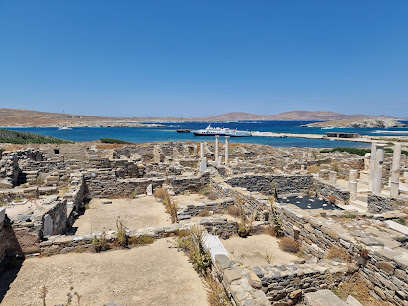
Windmills of Mykonos
Discover the historic Windmills of Mykonos, iconic landmarks offering panoramic views and a glimpse into the island's rich cultural heritage.
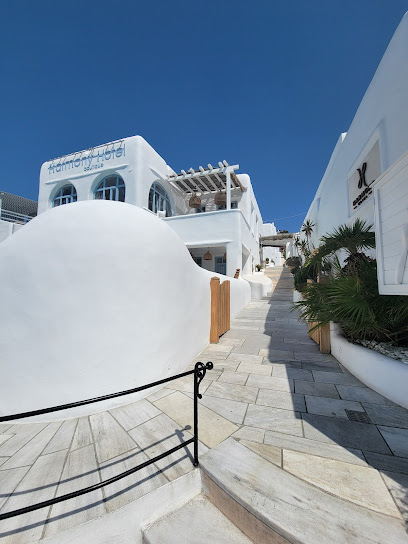
Armenistis Lighthouse
Discover the historic Armenistis Lighthouse in Mykonos: panoramic Aegean views, maritime history, and stunning sunsets await!
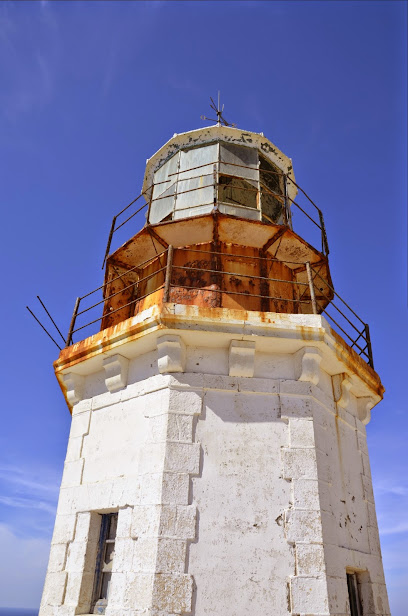
Manto Mavrogenous Statue
Honoring a Mykonian heroine, the Manto Mavrogenous Statue stands as a symbol of courage and a reminder of Greek independence.

Mykonos Old Port
Explore Mykonos Old Port: a historic Venetian harbor with picturesque waterfront views, charming shops, and cultural attractions.

Χώρα Μυκόνου
Explore the enchanting capital of Mykonos: whitewashed streets, iconic windmills, vibrant nightlife, and rich history await!
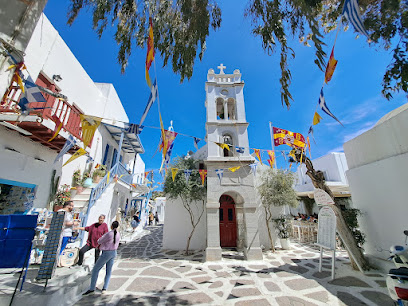
Gyzi Castle
Discover medieval history and panoramic views at Gyzi Castle, a Venetian-era fortress ruin near Ano Mera, Mykonos.
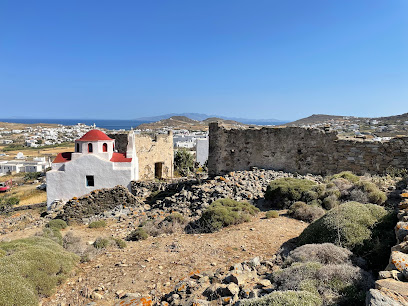
Lena's House Folk Museum
Explore a traditional 19th-century Mykonian home with original furnishings and artifacts at Lena's House Folk Museum.

I Love Mykonos Staircase
Capture the vibrant spirit of Mykonos at this colorful and artistic staircase, a perfect spot for memorable photos and a taste of local culture.

Mykonos Castle
Explore Mykonos Castle, a historical landmark with stunning Aegean Sea views, offering a glimpse into the island's Venetian past.
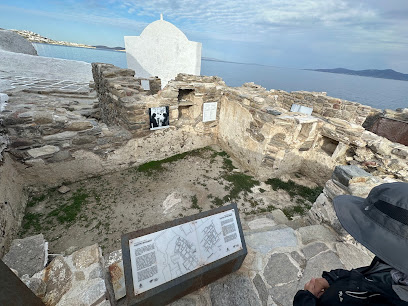
Ano Mera - Monument to the fallen - Mykonos
A serene memorial in Ano Mera, Mykonos, honoring local heroes and offering a peaceful retreat near the historic Panagia Tourliani Monastery.
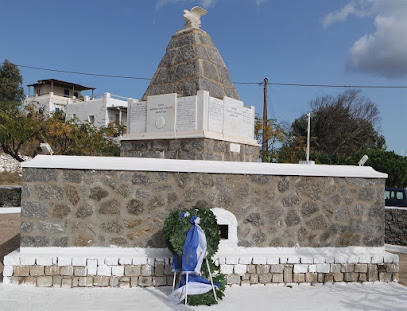
Mycenaean Tholos Tomb of Mykonos
Explore the ancient Mycenaean Tholos Tomb of Mykonos, a window into Greece's Bronze Age and architectural ingenuity.

Essential places to dine
Captain's - Food for Sharing
Experience authentic Greek cuisine at Captain's - Food for Sharing in Mykonos; where every dish is crafted for sharing amidst stunning waterfront views.

Yialo Yialo Restaurant Mykonos
Discover authentic Greek flavors at Yialo Yialo in Mykonos - where every meal is a celebration by the sea.
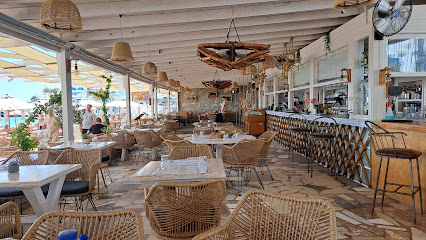
Kastro's Restaurant
Experience authentic Greek cuisine at Kastro's Restaurant in Mykonos – where tradition meets stunning views.
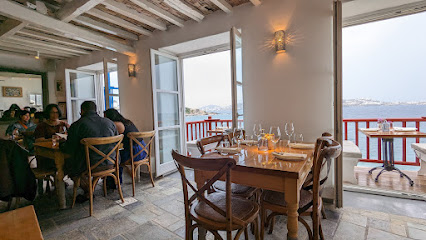
Vegera Restaurant Cafe Bar Mykonos
Experience authentic Greek seafood cuisine at Vegera Restaurant Cafe Bar in Mykonos with stunning sea views and a vibrant atmosphere.
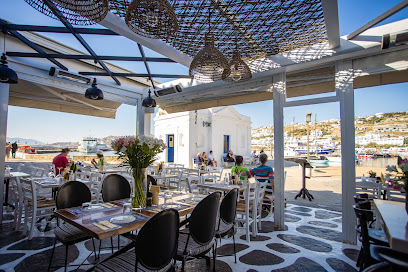
m-eating restaurant Mykonos town
Experience exquisite Greek cuisine at M-Eating Restaurant in Mykonos Town - where tradition meets modernity in every dish.

Kalita restaurant Mykonos town
Discover authentic Mediterranean cuisine at Kalita Restaurant in Mykonos Town - where every meal is a celebration of flavor.

Koursaros Restaurant Mykonos Town
Discover Koursaros Restaurant in Mykonos Town – A seafood haven offering exquisite fine dining experiences amidst breathtaking views.

Roca Sunset Restaurant Mykonos
Experience exquisite Greek and Mediterranean cuisine at Roca Sunset Restaurant while enjoying stunning views of Mykonos sunsets.

NOA Greek Taverna
Experience authentic Greek cuisine at NOA Greek Taverna in Mykonos Town - where tradition meets flavor in every dish.
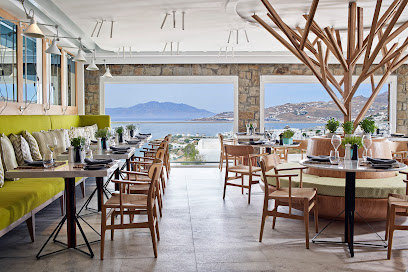
BAOS Greek Restaurant
Discover the authentic taste of Greece at BAOS Greek Restaurant in Mykonos – where tradition meets culinary excellence.

Markets, malls and hidden boutiques
Chora Mykonos | Barefoot Luxury Living - Branch Store
Discover the elegance of Mykonos living at Chora Mykonos, where luxury furniture meets exceptional design.

AMMON MYKONOS
Explore the vibrant shopping scene at AMMON MYKONOS, where unique fashion and local culture blend seamlessly in a delightful retail experience.
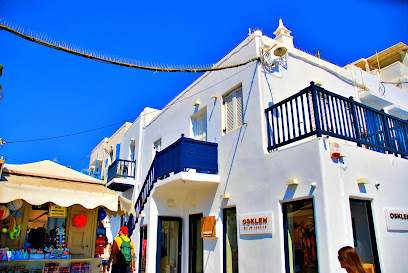
Happiness Mykonos
Explore Happiness Mykonos for unique fashion finds and a taste of the island's vibrant style, perfect for every occasion.
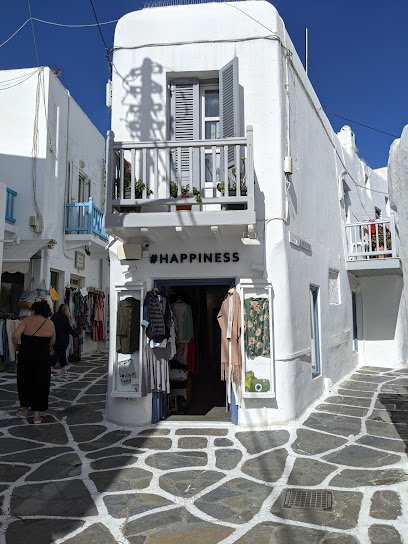
LALLOUZ Sarris Mykonos Unique Art gifts from Greek designers
Explore LALLOUZ Sarris in Mykonos for unique art gifts, jewelry, and pottery from talented Greek designers that embody the spirit of Greece.
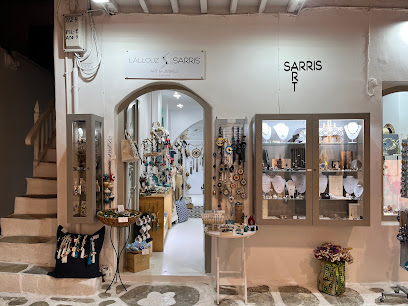
Mykonos path - Greek traditional souvenir
Explore Mykonos Path for authentic Greek clothing and jewelry, reflecting the island's rich cultural heritage and craftsmanship.

MUSE Art Shop (ex-iMuseum Shop)
Explore MUSE Art Shop in Mykonos for unique art and handcrafted treasures that embody the spirit of the island.
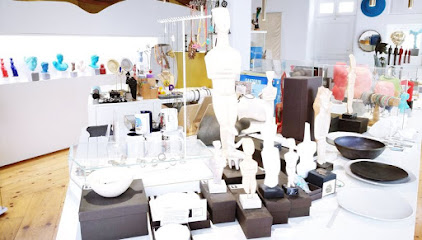
Oddity Mykonos
Explore the latest fashion trends at Oddity Mykonos, the ultimate clothing store for discerning travelers seeking style and quality.
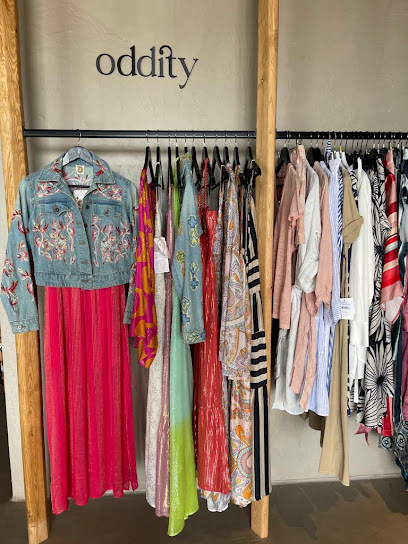
HERMES GALLERY MYKONOS
Explore the artistry of Mykonos at Hermes Gallery, a pottery store showcasing handcrafted ceramics that embody the island's rich cultural heritage.

Cultures
Explore Cultures Souvenir Store in Mykonos for unique handcrafted treasures that celebrate the island's rich artistic heritage.
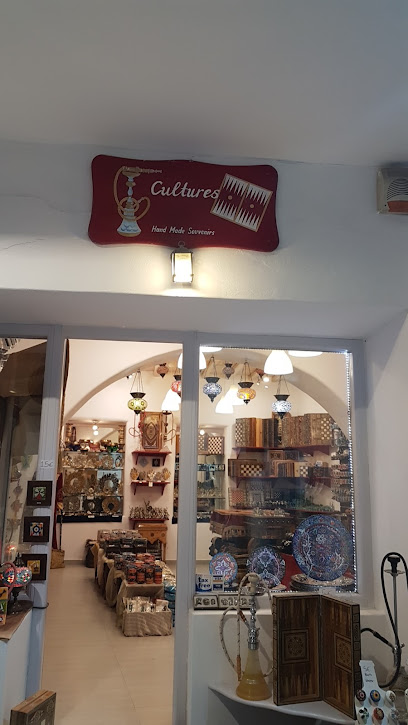
Salt Boutique Mykonos
Explore Salt Boutique Mykonos for an unforgettable shopping experience that captures the essence of island style and elegance.
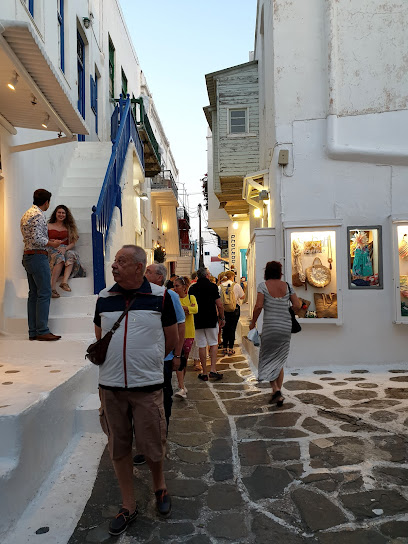
Essential bars & hidden hideouts
Semeli Bar, Little Venice
Discover the vibrant nightlife of Mykonos at Semeli Bar in Little Venice, where stunning views and delicious cocktails await.

180º Sunset Bar
Discover the magic of Mykonos at 180º Sunset Bar - a premier cocktail haven with breathtaking sunset views and a vibrant atmosphere.
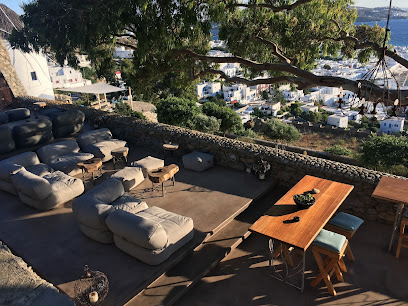
Katerina's Restaurant & Cocktail Bar
Experience the vibrant flavors and stunning views at Katerina's Restaurant & Cocktail Bar in Mykonos, where Greek tradition meets modern culinary excellence.

Scarpa bar
Experience the vibrant nightlife at Scarpa Bar, Mykonos' premier destination for cocktails, stunning views, and electrifying dance parties.

CERISE BAR
Discover the vibrant nightlife of Mykonos at Cerise Bar, where exquisite cocktails and stunning sea views await you.

NEGRITA MYKONOS
Discover the vibrant nightlife of Mykonos at Negrita, a bar with stunning views, delicious cocktails, and an unforgettable atmosphere.
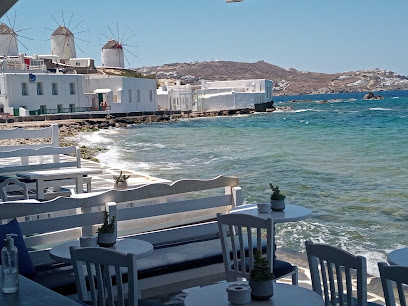
Queen of Mykonos
Discover unforgettable nightlife at Queen of Mykonos, where exquisite cocktails meet a vibrant atmosphere in the heart of Mykonos.
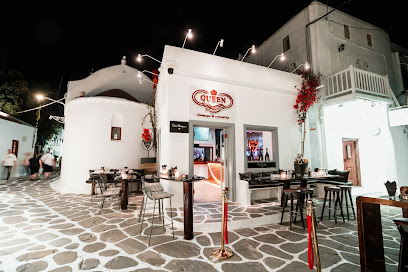
Lola Bar
Experience the vibrant nightlife of Mykonos at Lola Bar, a premier gay bar offering signature cocktails and an inclusive atmosphere.
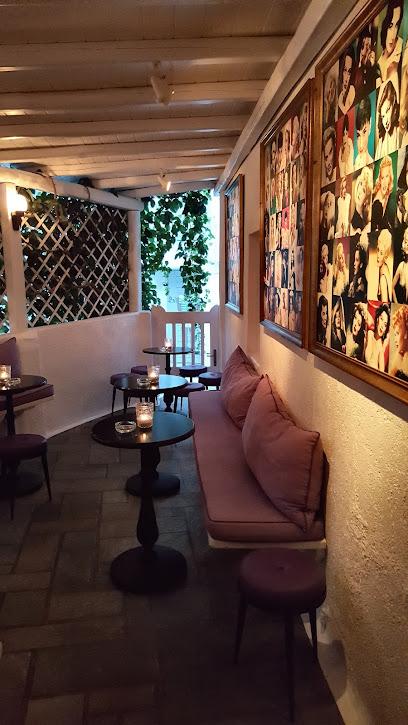
Bao's Cocktail Bar Mykonos
Discover the vibrant nightlife at Bao's Cocktail Bar in Mykonos, where expertly crafted cocktails and a lively atmosphere await.
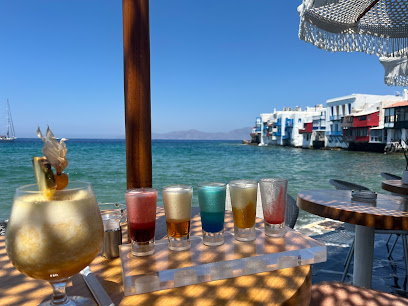
Alley Cafe
Experience the vibrant nightlife of Mykonos at Alley Cafe, where unique cocktails and a lively atmosphere await you.

Local Phrases
-
- HelloΓεια σας
[Yah sas] - GoodbyeΑντίο
[Adio] - YesΝαι
[Ne] - NoΌχι
[Ohi] - Please/You're welcomeΠαρακαλώ
[Parakalo] - Thank youΕυχαριστώ
[Efharisto] - Excuse me/SorryΣυγγνώμη
[Signomi] - How are you?Πώς είστε;
[Pos iste?] - Fine. And you?Καλά. Εσείς;
[Kala. Esis?] - Do you speak English?Μιλάτε Αγγλικά;
[Milate Anglika?] - I don't understandΔεν καταλαβαίνω
[Den katalaveno]
- HelloΓεια σας
-
- I'd like to see the menu, pleaseΘα ήθελα να δω το μενού, παρακαλώ
[Tha ithela na do to menu, parakalo] - I don't eat meatΔεν τρώω κρέας
[Den troo kreas] - Cheers!Στην υγειά σας!
[Stin yia sas!] - I would like to pay, pleaseΘα ήθελα να πληρώσω, παρακαλώ
[Tha ithela na plirosso, parakalo]
- I'd like to see the menu, pleaseΘα ήθελα να δω το μενού, παρακαλώ
-
- Help!Βοήθεια!
[Voithia!] - Go away!Φύγε!
[Fiye!] - Call the Police!Καλέστε την Αστυνομία!
[Kaleste tin Astinomia!] - Call a doctor!Καλέστε έναν γιατρό!
[Kaleste enan yatro!] - I'm lostΈχω χαθεί
[Eho hathi] - I'm illΕίμαι άρρωστος
[Ime arrostos]
- Help!Βοήθεια!
-
- I'd like to buy...Θα ήθελα να αγοράσω...
[Tha ithela na agoraso...] - I'm just lookingΑπλά κοιτάω
[Apla kitao] - How much is it?Πόσο κοστίζει;
[Poso kostizi?] - That's too expensiveΑυτό είναι πολύ ακριβό
[Afto ine poli akribo] - Can you lower the price?Μπορείτε να χαμηλώσετε την τιμή;
[Borite na hamilosete tin timi?]
- I'd like to buy...Θα ήθελα να αγοράσω...
-
- What time is it?Τι ώρα είναι;
[Ti ora ine?] - It's one o'clockΕίναι μία η ώρα
[Ine mia i ora] - Half past (10)Μισή (10)
[Misi (dekα)] - MorningΠρωί
[Proi] - AfternoonΑπόγευμα
[Apoyevma] - EveningΒράδυ
[Vradi] - YesterdayΧθες
[Hthes] - TodayΣήμερα
[Simera] - TomorrowΑύριο
[Avrio] - 1Ένα
[Ena] - 2Δύο
[Dio] - 3Τρία
[Tria] - 4Τέσσερα
[Tessera] - 5Πέντε
[Pente] - 6Έξι
[Exi] - 7Επτά
[Epta] - 8Οχτώ
[Ohto] - 9Εννιά
[Ennia] - 10Δέκα
[Deka]
- What time is it?Τι ώρα είναι;
-
- Where's a/the...?Πού είναι ένα/το...;
[Pou ine ena/to...?] - What's the address?Ποια είναι η διεύθυνση;
[Pia ine i diefthinsi?] - Can you show me (on the map)?Μπορείτε να μου δείξετε (στο χάρτη);
[Borite na mou dixete (sto charti)?] - When's the next (bus)?Πότε είναι το επόμενο (λεωφορείο);
[Pote ine to epomeno (leoforeio)?] - A ticket (to ....)Ένα εισιτήριο (για ....)
[Ena isitirio (ya ....)]
- Where's a/the...?Πού είναι ένα/το...;
History of Chora
-
Chora, the capital of Mykonos, is steeped in ancient history, with its origins tracing back to the 3rd century BC. According to mythology, Mykonos was named after the hero Mykonos, a companion of Hercules. The island's strategic location in the Aegean Sea made it a crucial point for trade and navigation in antiquity, with historical accounts referencing its participation in the Delian League.
-
During the 14th to 16th centuries, Mykonos was under Venetian rule. This period was marked by frequent pirate invasions, leading to the construction of defensive structures in Chora. The iconic windmills and the fortress-like architecture of the town were part of the island’s response to the threats from the sea, showcasing a blend of functionality and aesthetic appeal.
-
Chora played a significant role during the Greek War of Independence (1821-1829). Mykonos was one of the first islands to join the revolution against Ottoman rule. The local population actively participated in naval battles and supported the revolutionary forces, which fostered a sense of national identity and pride that is still celebrated today.
-
Post-World War II, Chora began to transform into a tourist destination. The 1960s marked the onset of a tourism boom, leading to the development of infrastructure and services catering to visitors. This shift altered the socio-economic landscape of the town, turning it into a vibrant hub known for its nightlife, beaches, and cultural events.
-
Today, Chora is celebrated not only for its picturesque streets and stunning sunsets but also for its rich cultural heritage. The town houses numerous churches, traditional Cycladic architecture, and historical landmarks such as the Archaeological Museum of Mykonos. Annual festivals, such as the Feast of Panagia, showcase the island's traditions, reinforcing its identity as a vibrant cultural center in the Cyclades.
Chora Essentials
-
Chora, the main town of Mykonos, is easily accessible from other neighborhoods on the island. If you are coming from the airport, taxis are available for a direct route to Chora, taking about 10 minutes. Public buses also run regularly between the airport and Chora. For those already in Mykonos Town, walking is a pleasant way to explore, as Chora is compact and pedestrian-friendly. Alternatively, local buses connect Chora to other popular areas such as Ornos and Platys Gialos.
-
Chora is best explored on foot due to its narrow, winding streets. However, there are local buses that provide service to surrounding beaches and neighborhoods. Taxis are readily available, and you can also rent bicycles or scooters from various shops in the area. Be aware that parking can be limited, so using public transport or walking is often the best option.
-
Chora is generally safe for tourists. However, it's advisable to remain vigilant, particularly in crowded areas where pickpocketing can occur. Avoid poorly lit streets at night and keep an eye on your belongings. While there are no specific high-crime areas, staying aware of your surroundings and not displaying valuables can enhance your safety.
-
In case of an emergency, dial 112 for police, fire, or medical assistance. The nearest hospital is located in Mykonos Town. It is recommended to have travel insurance that provides coverage for medical emergencies. For minor health issues, pharmacies are available throughout Chora, where you can find over-the-counter medications.
-
Fashion: Do wear light, comfortable clothing suitable for the warm climate, but avoid overly revealing outfits in religious sites. Religion: Do respect local customs, especially in churches, by dressing modestly and covering your shoulders. Public Transport: Do be polite and offer your seat to the elderly. Don't eat or drink on public transport. Greetings: Do greet locals with a friendly smile and a polite 'Kalimera' (Good morning). Eating & Drinking: Do try local specialties such as moussaka and seafood. Don’t be overly loud or disruptive in eateries, as a quiet atmosphere is preferred.
-
To experience Chora like a local, explore the lesser-known paths and alleys away from the main tourist spots. Visit local bakeries for fresh pastries and enjoy a meal at family-run tavernas that serve authentic Greek dishes. Engage with locals; they are often very welcoming and can provide insights into the best places to visit. Also, consider attending local festivals or events for a deeper cultural experience.













